by Lisa Cooke | Sep 11, 2016 | 01 What's New, Conferences
The Federation of Genealogical Societies Conference 2017 is already on our radar. The FGS has just announced two hotels open for reservations for the annual conference being held August 30th – September 2nd, 2017. Plan ahead – hotel accommodations fill up fast!
Federation of Genealogical Societies Conference 2017
FGS has announced that hotel reservations are now open for the 2017 “Building Bridges to the Past” conference to be held in Pittsburgh, Pennsylvania on August 30 – September 2, 2017. This fantastic genealogical conference will be held at the David L. Lawrence Convention Center.
The Westin Convention Ceneter and the Omni William Penn Hotel are offering reduced rates to the Federation of Genealogical Societies Conference 2017 attendees from Wednesday, August 23 to Friday, September 8 (subject to availability.) Both hotels are conveniently located near the David L. Lawrence Convention Center.
Make your reservations today, as rooms fill up quickly. Hotel information is as follows:
Westin Convention Center (Main Conference Hotel,) 1000 Penn Ave., Pittsburg.
Omni William Penn Hotel, 530 William Penn Place, Pittsburg.
FGS 2016
Here’s what FGS looked like for us at Genealogy Gems. We’d love to see you there next year.
by Lisa Cooke | Sep 10, 2016 | 01 What's New, Maps, United States |
The online Atlas of Historical County Boundaries is a go-to resource for determining old U.S. county boundaries. Its popular, interactive map will re-launch later this fall. Meanwhile, you can still access county boundary data and even Google Earth compatible maps.
For quite some time, the online U.S. Atlas of Historical County Boundaries has flashed the following message at the top of its webpage:

The first time I saw this message, I panicked. This is my favorite resource for quickly researching historical county boundaries in the U.S. The interactive map feature lets you click on a state and then on a county to see its boundaries on any exact date. I realized the rich data that feeds the interactive map is still there and you can still get to it.
Several months later, I noticed the out of order message was still there. I emailed the Newberry Library in Chicago which hosts the Atlas to see what they could share with Genealogy Gems about the Atlas and its future.
Curator Matt Rutherford replied right away: “We love Genealogy Gems! It’s such an excellent podcast.” (Lisa says “Thanks! We love you, too!”)
He explained that the online Atlas was originally meant to serve a small group of historians. When the interactive map’s code became outdated, the thought was to just let it die. He credits genealogists with giving it a future.
 “Newberry heard loudly and clearly from the genealogy community about their love for the online Atlas,” says Matt. “It is because of the popularity of the Atlas among genealogists and due to Newberry’s commitment to serving the genealogy community that [we’ve] decided to dedicate resources to the interactive map’s redevelopment.”
“Newberry heard loudly and clearly from the genealogy community about their love for the online Atlas,” says Matt. “It is because of the popularity of the Atlas among genealogists and due to Newberry’s commitment to serving the genealogy community that [we’ve] decided to dedicate resources to the interactive map’s redevelopment.”
When will the interactive map be back? “We do anticipate a launch in the fall, but we don’t have an exact date yet,” he says. “It takes time and funding to redevelop an interactive tool that is as data-rich as the Atlas. Once we got ‘under the hood,’ we realized that the redevelopment needed to be more extensive than originally anticipated.” (Genealogy Gems Premium website members can hear the full scoop from Matt in the Genealogy Gems Premium Podcast episode #137.)
How to find county boundaries with the Atlas of Historical County Boundaries in three steps
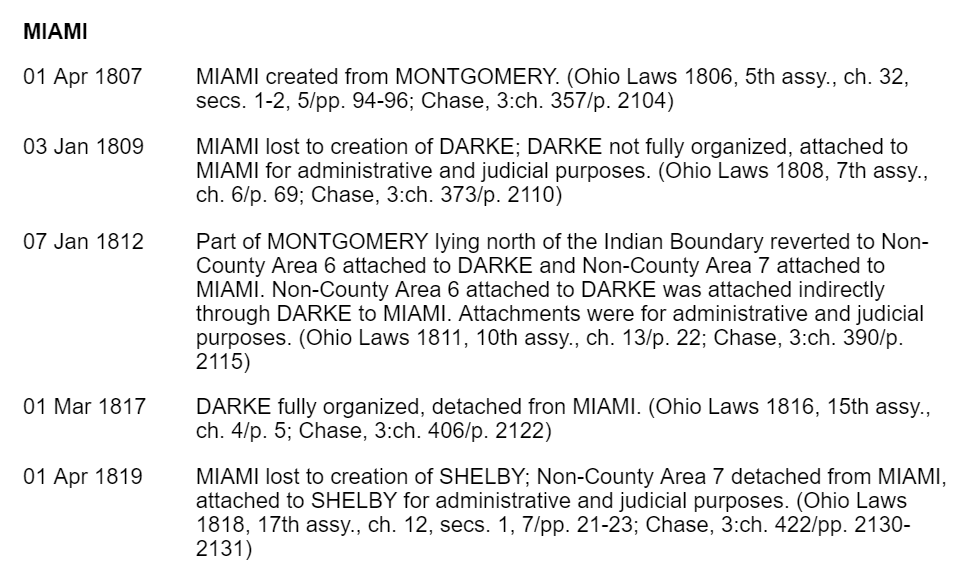
1. From the Atlas home page, click on the state of interest from the national interactive map.
2. From the state page, click on View Index of Counties and Equivalents. This will show you all current and past county names. (See image.)
3. From this page, click on your targeted county. You’ll find a timeline of that county’s boundary changes.
Use the timeline to discover what county your ancestors belonged to at any given time. Perhaps you’ll discover you should actually be looking for an ancestor’s marriage record or  probate in a parent county, one that existed there before the current county, or in a successor county later carved out of this one.
probate in a parent county, one that existed there before the current county, or in a successor county later carved out of this one.
Google Earth Bonus: The Atlas of Historical Boundary Changes state pages include downloadable maps compatible with Google Earth and Google Maps. If you are not using Google Earth for genealogy yet, watch Lisa Louise Cooke’s free video to see how and why you want to use this amazing 3D map of the world for your family history!
More Gems on Using Interactive Maps for Genealogy
Illuminating Time-Lapse Videos Show Our Changing World
Historical Maps of New York City and More Now Free Online
Family Maps and Migration Routes Traced with New Tech Tools
by Lisa Cooke | Sep 9, 2016 | 01 What's New, Records & databases
Colonial genealogy records are just the tip of the iceberg in this week’s new and updated genealogical collections. If your roots go back to the early days of the American colonies, you will want to get started in these unique colonial genealogy records. Additionally, some fantastic finds for the United Kingdom and Denmark are also available in this week’s gems.
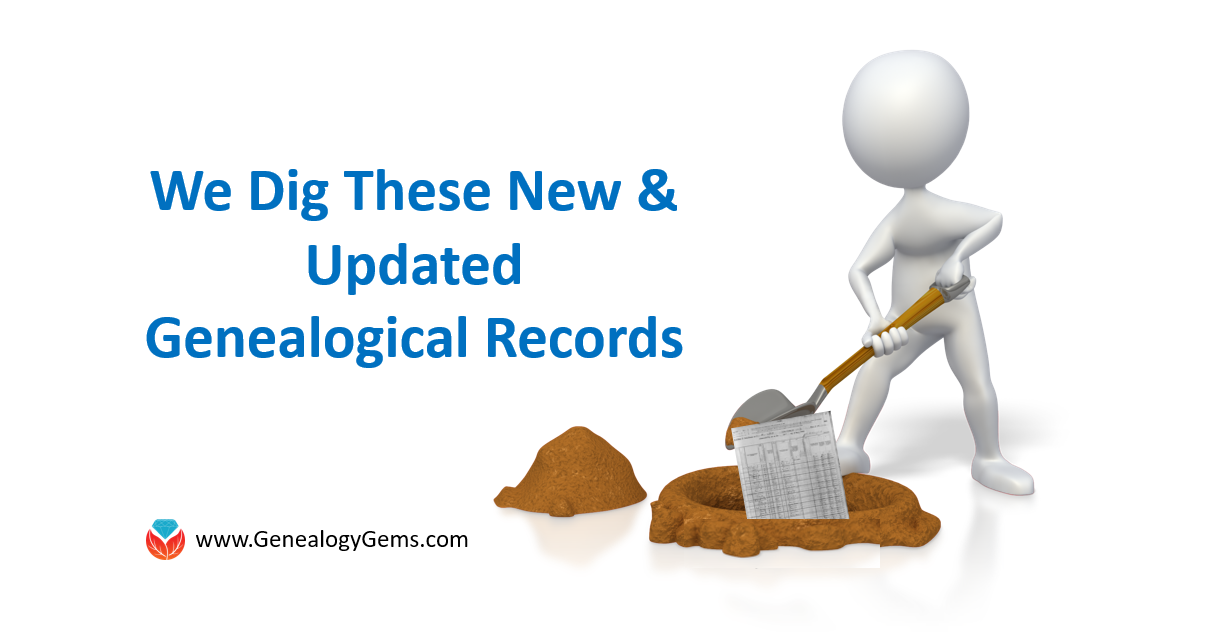
Attention! Special Announcement!
Each week, we bring you the new and updated genealogical collections at Findmypast and many other genealogy websites. This week, we are excited to announce that Findmypast is offering a new and lower annual subscription price! Get this brand new “Starter” local package by clicking here.
Findmypast offers millions of genealogical records including U.S. birth, marriage and death records, U.S. immigration and travel records, U.S. newspapers and a collection of U.K. census records.
United States and Canada – Transatlantic Migration
First things first: where and when did your early American family arrive in the New World? Findmypast has added a new collection titled United States, Transatlantic Migration. This collection offers more than 30,000 records shedding light on the lives of your migrating ancestors from England, Scotland, Ireland, the Netherlands, Germany, and France from as early as the 1500s to as recent as the 1900s. Some information you may be able to find include: birth countries, date of emigration, ages, occupations, and names of family members. Once you have found where your family settled, head on over to the next record set for founding families.
United States – Colonial Genealogy Records
Findmypast’s colonial genealogy records set titled United States, Early American Families is a one-of-a-kind collection. These records will help you learn even more about your ancestral ties to early founding families in America. Dive into 140 publications containing over 86,000 records. These records provide details regarding the early families and their descendants. You might even learn the birth or death year of your family’s brick wall ancestor!
A sister colonial genealogy records collection titled United States, Early American Vital Records will also be of interest to those searching the colonial American family. This collection is filled with over 14,000 vital records as early as the 1600s! You will be delighted with the many birth, marriage, and death registers, gravestone inscriptions, and wills you can find here.
United States – Connecticut – Town Vitals
The Barbour Collection of Connecticut Town records, also from Findmypast, contains over 18,000 vital record volumes pertaining to Connecticut towns. You will need to search these records by surname. If your ancestral surname is located, you will find a PDF image that may list the birth or death dates, names of family members, and other personal details of the Connecticut family.
United States – Colonial Williamsburg
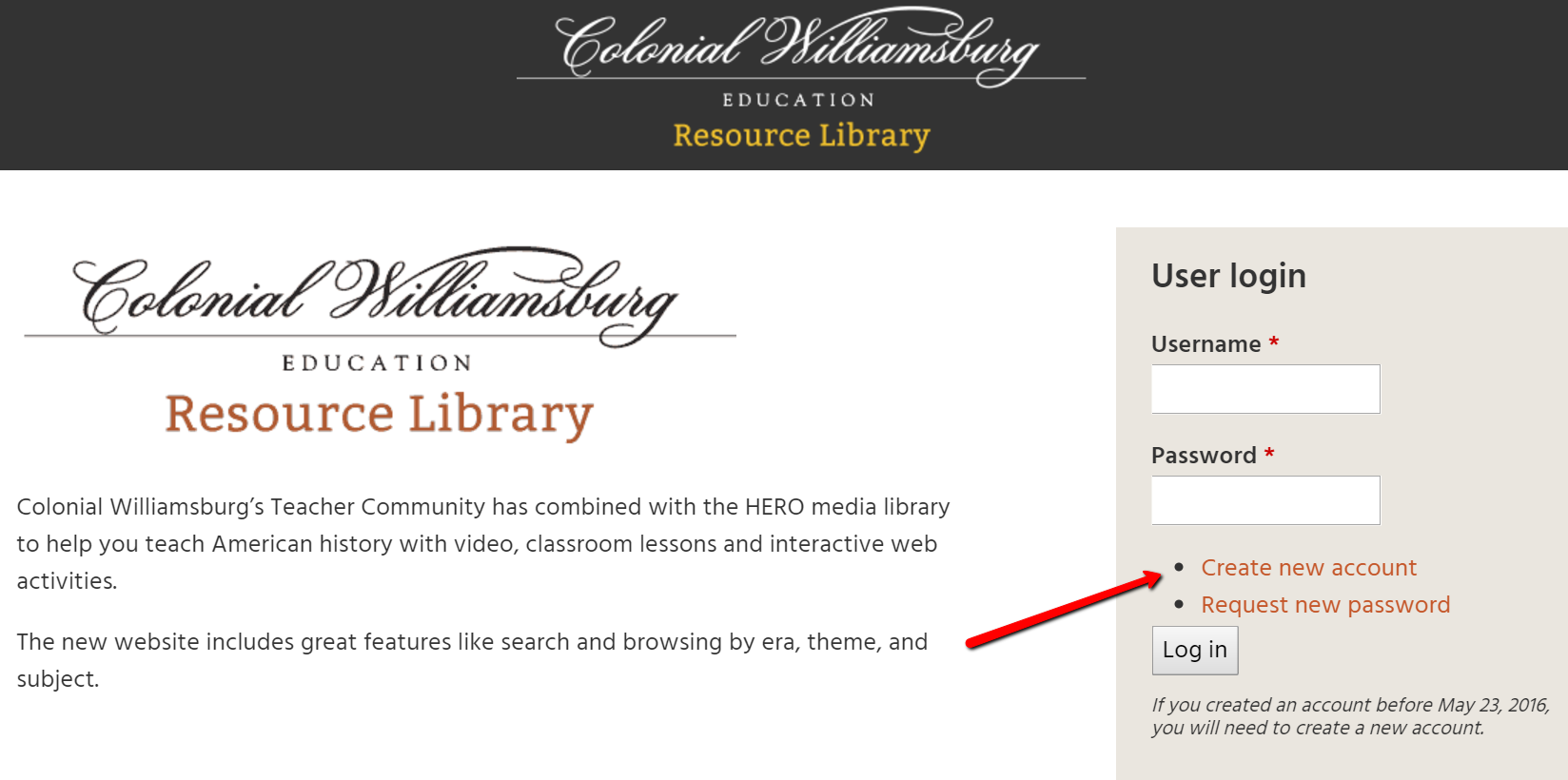
The Colonial Williamsburg Education Resource Library has been made available to everyone with a thirst for learning. What better resource to learn about your colonial American family research than with the library’s more than 100 lesson plans, background texts, and primary source media.
You will need to create an account, but it is free. Even though the account sign-up page seems to be for educators only, it is for everyone! I made my own account and got pretty excited looking through the many videos available. My son, a big history buff, is going to love this! I am always looking for ways to get the kids interested in family history.
United Kingdom – Military
Over 1.1 million War Office records covering officers, nurses, and other ranks have been updated in the British Army Casualty Lists 1939-1945 collection this past week. These lists cover the individuals reported as killed in action, wounded, prisoner of war, missing, died of wounds, dangerously ill, and more.
This collection at Findmypast is fully searchable and offers transcripts and digital images of the original documents. Most lists will give the person’s name, rank, service number, regiment, and status. It may also provide the date of death if applicable.
Denmark – Census
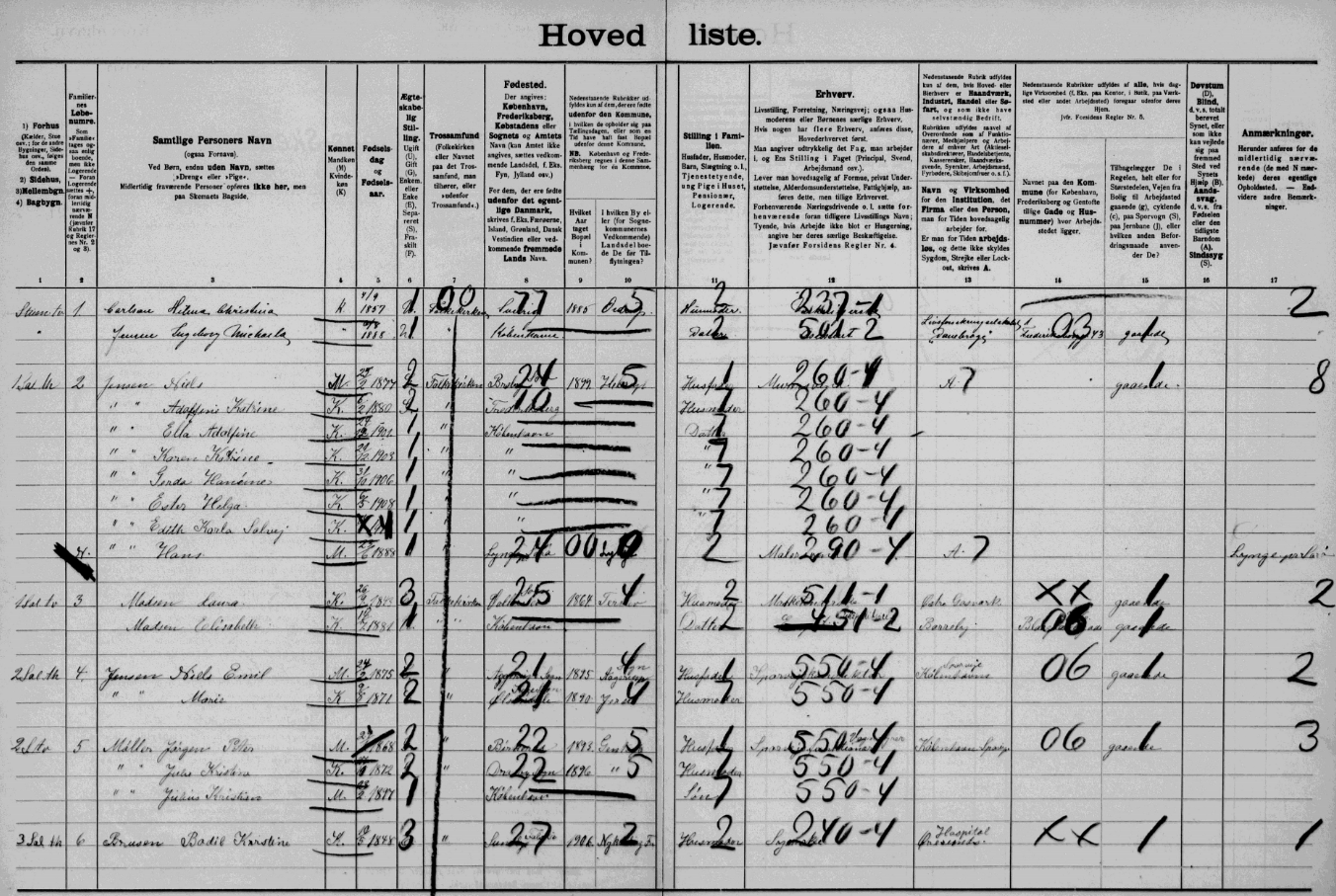
FamilySearch.org is where to look for your Danish ancestors! The name index of the Denmark census taken in 1911 is available for free at FamilySearch or with your paid subscription at MyHeritage.
The Denmark census of 1911 was the thirteenth census for the country. Though the census includes the countries of Greenland, Faroe Islands, and the Danish West Indies, what you will find on FamilySearch is only those enumerations for Denmark. The census is divided into three sections: Copenhagen city, other cities, and rural areas.
This census is written in Danish of course, so you might need a little help with some translation. Pop on over to FamilySearch wiki here to find a helpful chart of key words in both Danish and English.
This census asks questions pertaining to names of household members, birth date and year, birth location, religion, occupation, your means of getting to work, and how long it takes to get to your location of work! Isn’t that interesting?!
More Gems on Colonial American Family Research
Looking for even more tips and tricks to researching the colonial American family? Try these Genealogy Gem favorites!
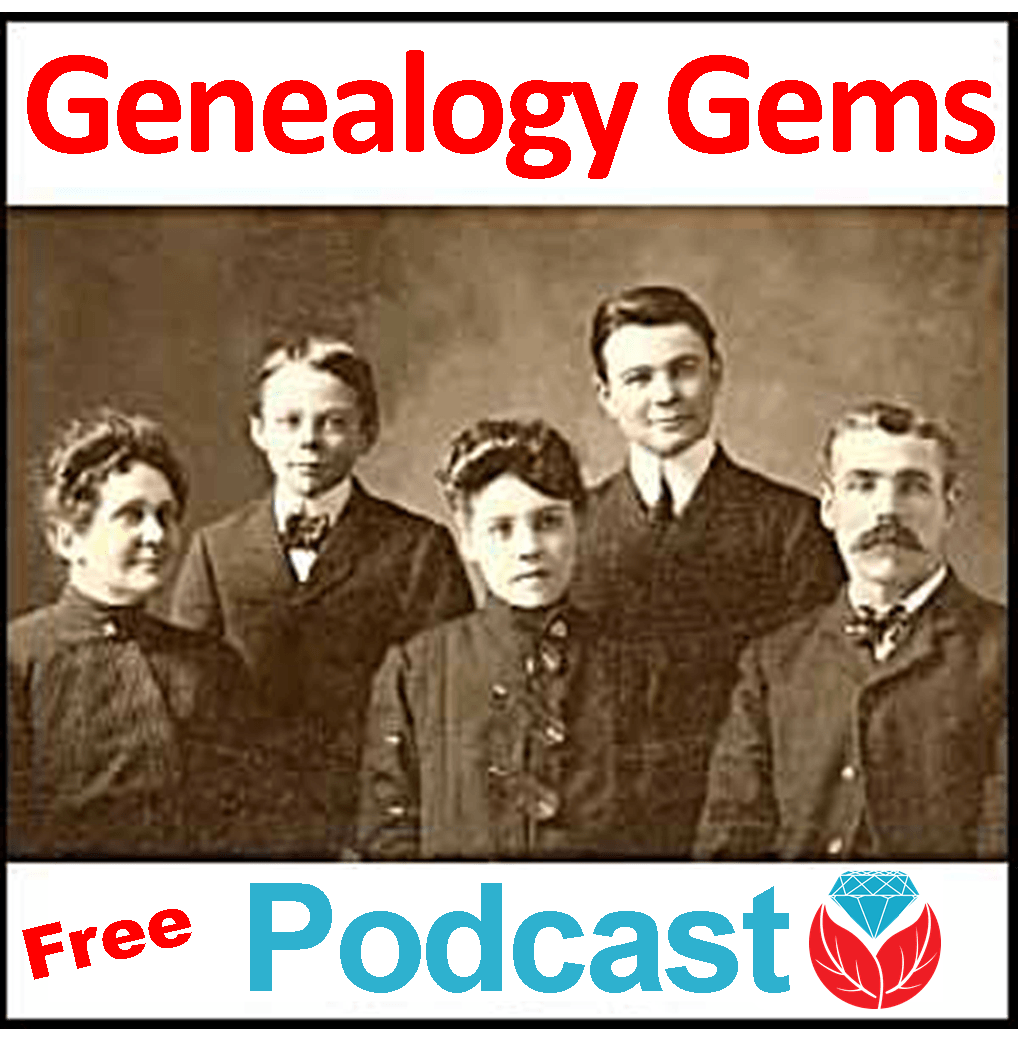 If you haven’t been enjoying The Genealogy Gems (free!) Podcast, try it out today! A podcast is like listening to a favorite radio show from your computer or mobile device. Get up-to-date with everything new and exciting in the world of genealogy, learn a new tech tip, and find inspiration in these wonderful podcast programs!
If you haven’t been enjoying The Genealogy Gems (free!) Podcast, try it out today! A podcast is like listening to a favorite radio show from your computer or mobile device. Get up-to-date with everything new and exciting in the world of genealogy, learn a new tech tip, and find inspiration in these wonderful podcast programs!
Disclosure: This article contains affiliate links and Genealogy Gems will be compensated if you make a purchase after clicking on these links (at no additional cost to you). Thank you for supporting Genealogy Gems!
by Lisa Cooke | Sep 7, 2016 | 01 What's New, Book Club, British, Military, United States |
Research WWII ancestors with these three tips. The experiences of our ancestors during World War II add a rich texture to their personal history. Whether in the military, on the home-front, or those living in neighborhoods that became battle zones, find their stories with these helpful tips.
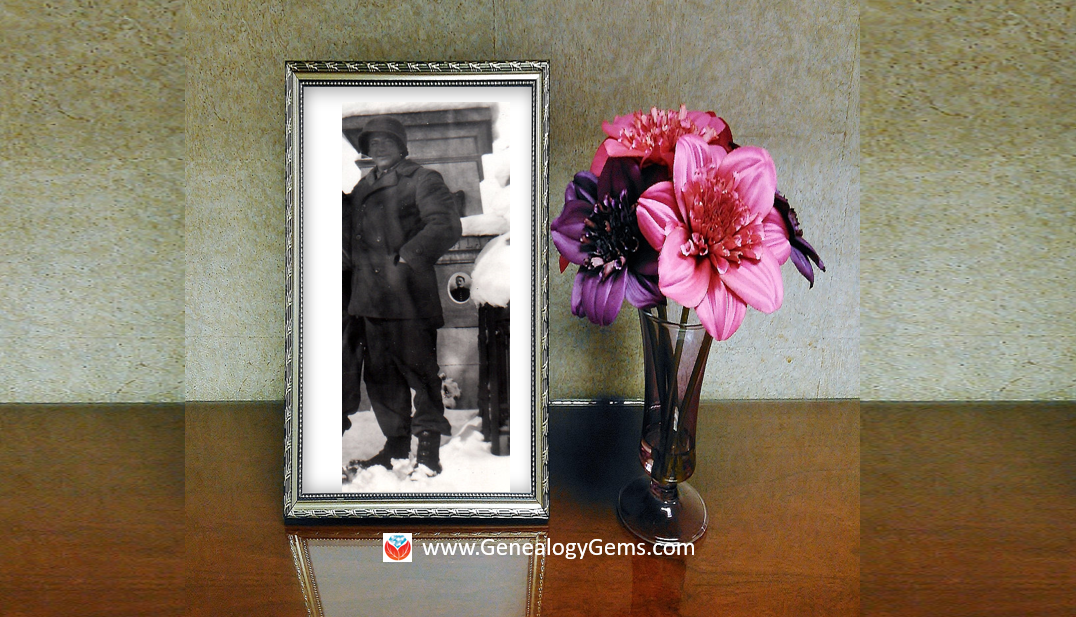
 In Everyone Brave is Forgiven by Chris Cleave, our current Genealogy Gems Book Club title, we read about different ways Londoners experienced World War II. A soldier shipped out to Malta, a female War Office recruit, a child evacuee, a civilian running regularly for underground shelters as bombs fell; these are just a few of the book’s poignant stories.
In Everyone Brave is Forgiven by Chris Cleave, our current Genealogy Gems Book Club title, we read about different ways Londoners experienced World War II. A soldier shipped out to Malta, a female War Office recruit, a child evacuee, a civilian running regularly for underground shelters as bombs fell; these are just a few of the book’s poignant stories.
That diversity of experience was part of our ancestors’ lives, too. Some served in the military and some kept the home fires burning. Some even dodged bombs or bullets in their own neighborhoods! Many experienced the horrors of concentration, POW, or other types of interment camps.
As many different experiences as they had, there are just as many ways to research their lives during WWII. Here are several scattered examples of the kinds of records and resources you may find. Do a little of your own exploring to see whether the kinds of materials below exist for your WWII ancestors.
Research WWII Ancestors: The Soldier

Research WWII Ancestors: On the Home Front and in Harm’s Way

Lisa’s grandmother heading off to work at Kaiser’s Richmond Shipyards, c. 1941
Millions of civilians’ lives were directly affected by the war. Many women entered jobs for the first time in their lives or began doing new types of volunteer work. Families faced rationing, price controls, and blackouts. Some unfortunates found themselves in the path of the war.
This article from the U.S. National Archives has an excellent review of the kinds of online and offline resources you can read to learn more about U.S. home front activities. Reading Everyone Brave is Forgiven will introduce you (in a re-imagined way) to the experience of Londoners caught in The Blitz. You can also explore The Blitz in this interactive map of the bombings.
Speaking of maps, one resource your home-front family would have used to follow troop movements and the progress of the war were the Stanley Turner maps. His collection contained a unique series of action-packed maps. These can add a fascinating and colorful layer of understanding to your family’s experience during this time.
Must-reads: The Genealogy Gems Book Club
 The Genealogy Gems Book Club is an exceptional virtual book club for everyone. Every quarter, we recommend a fiction or nonfiction title that has a compelling slant for family history lovers. Then, we interview the author and share the conversation with you. Right now, we’re talking about Everyone Brave is Forgiven by Chris Cleave, who joins us in a couple of weeks on the Genealogy Gems Premium Podcast (there’s an advance teaser in the free Genealogy Gems podcast episode 195.) Watch for these episodes and check out other titles we’ve recommended in The Genealogy Gems Book Club!
The Genealogy Gems Book Club is an exceptional virtual book club for everyone. Every quarter, we recommend a fiction or nonfiction title that has a compelling slant for family history lovers. Then, we interview the author and share the conversation with you. Right now, we’re talking about Everyone Brave is Forgiven by Chris Cleave, who joins us in a couple of weeks on the Genealogy Gems Premium Podcast (there’s an advance teaser in the free Genealogy Gems podcast episode 195.) Watch for these episodes and check out other titles we’ve recommended in The Genealogy Gems Book Club!
by Lisa Cooke | Sep 5, 2016 | 01 What's New, Conferences
Attend Lisa’s upcoming seminars and Google your way to genius! Both the North Texas Genealogical Association and the Genealogy Friends of Plano host Lisa this month. She is presenting some fantastic, genealogy-packed lectures you won’t want to miss.
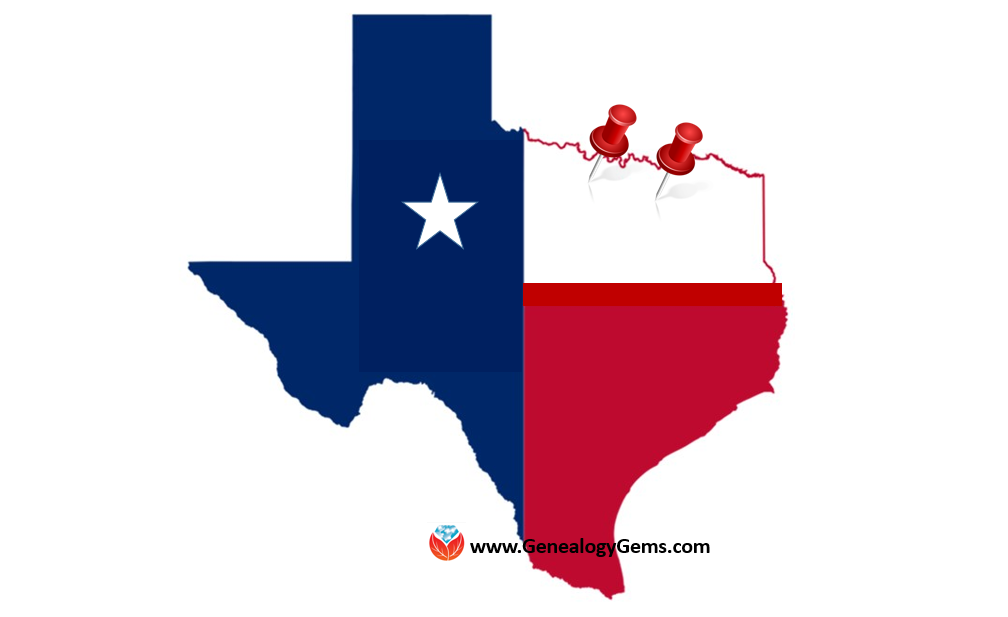
Lisa’s Upcoming Seminar in Wichita Falls
The North Texas Genealogical Association is going big with their upcoming seminar on Saturday, September 10, 2016. Our own Google Guru, Lisa, is presenting the lectures for their fall workshop being held at the First United Methodist Church at 909 10th St. in Wichita Falls, Texas.
Lecture titles include:
- “Google Tools and Procedures”
- “Get the Scoop: Newspapers”
- “Inner Private Eye: 9 Strategies”
- “Google Earth for Genealogy”
The doors open at 9 am and the seminar will conclude at 3:30 pm. A light lunch will be included with the price of registration. Early registration has been extended through TODAY September 5th and the cost is $45.00. Registration after September 5th, and at the door, will be $55.00. You can download the registration form here.
Lisa’s Upcoming Seminar in Plano
The Genealogy Friends of Plano Libraries, Inc. are also hosting a seminar this month with Lisa! Join attendees at the First Presbyterian Church Plano on 1500 Jupiter Rd. in Plano, Texas. This genealogy smorgasbord of lectures will be held on Saturday, September 17th.
Lecture titles include:
- “Ultimate Google Search Strategies”
- “How to Find Your Family History in Newspapers”
- “Time Travel with Google Earth”
- “How to Reopen and Work a Genealogical Cold Case”
Early registration before September 12th is $45 for members or $50 for non-members. If you miss the early registration deadline, you can still attend! Price of admission after September 12th and at the door will be $50.00 for both members and non-members.
For a schedule of the day and a registration form, click here. The Genealogy Friends of Plano Libraries ask that you bring your own lunch, but they will provide lemonade, coffee, and tea.
Keep Up with All of Lisa’s Upcoming Lectures
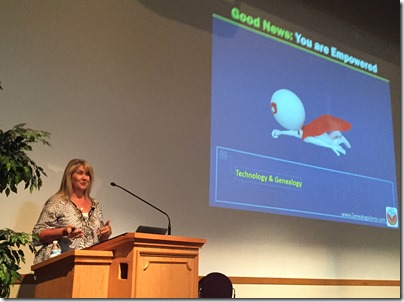
Photo Credit: Ancestry Insider
She’s a jet setter folks! If you are like me, you want to stay up-to-date on where Lisa will be speaking and when you are lucky enough to have her in your area. See her entire seminar schedule here. Why not share the schedule with your genealogy buddies and meet for a fun weekend trip. Nothing beats a little genealogy with friends!
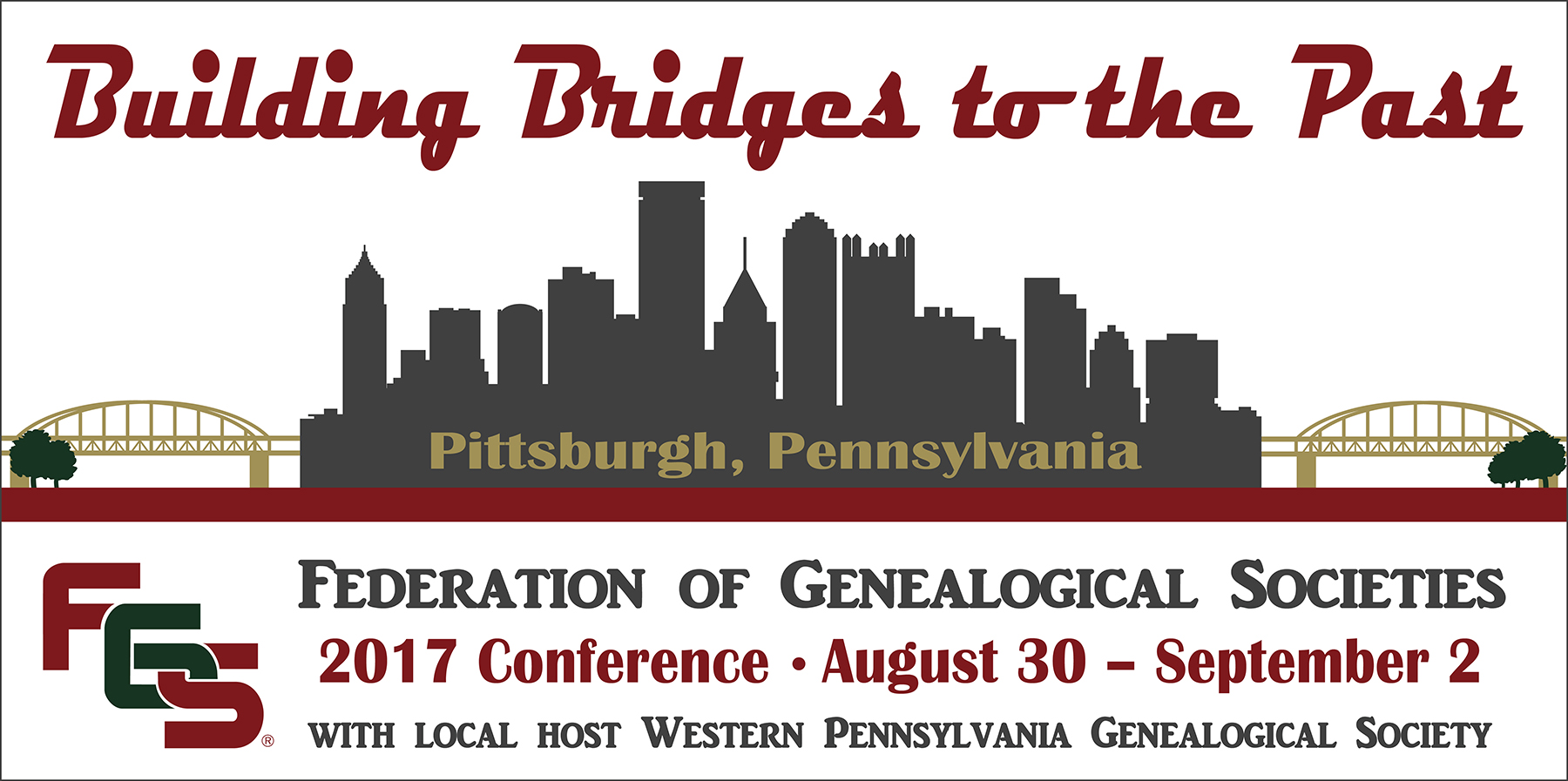


 “Newberry heard loudly and clearly from the genealogy community about their love for the online Atlas,” says Matt. “It is because of the popularity of the Atlas among genealogists and due to Newberry’s commitment to serving the genealogy community that [we’ve] decided to dedicate resources to the interactive map’s redevelopment.”
“Newberry heard loudly and clearly from the genealogy community about their love for the online Atlas,” says Matt. “It is because of the popularity of the Atlas among genealogists and due to Newberry’s commitment to serving the genealogy community that [we’ve] decided to dedicate resources to the interactive map’s redevelopment.”




 If you haven’t been enjoying
If you haven’t been enjoying 









